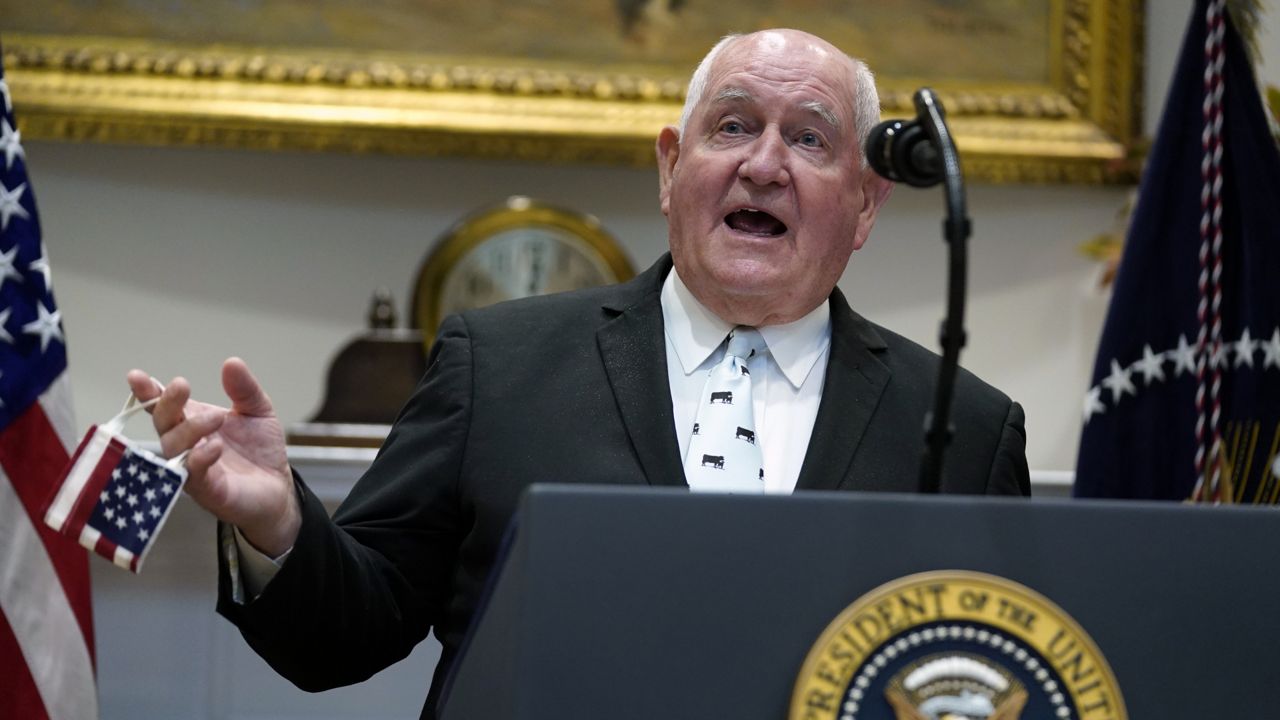WASHINGTON, D.C. — A federal judge on Sunday blocked a proposal from the Trump administration that would have cut food stamp benefits for nearly 700,000 Americans.
The ruling came amid a monthslong back-and-forth between the federal government and multiple states after the administration’s December 2019 proposal to tighten work requirements for recipients of the Supplemental Nutrition Program, known as SNAP. The plan limited states from exempting work-eligible adults from having to maintain steady employment in order to receive benefits.
In Sunday’s 67-page ruling, U.S. District Judge Beryl A. Howell condemned the administration for attempting to push through the proposal in the midst of the coronavirus pandemic. Howell said the Department of Agriculture — the department that administers the SNAP program — has been "icily silent" about the number of people the rule change would affect, while "SNAP rosters have grown by over 17 percent with over 6 million new enrollees."
The proposed change "abruptly alters decades of regulatory practice, leaving States scrambling and exponentially increasing food insecurity for tens of thousands of Americans," Howell continued.
Under current rules, work-eligible able-bodied adults without dependents and between the ages of 18 and 49 can currently receive only three months of SNAP benefits in a three-year period if they don’t meet the 20-hour work requirement. But states with high unemployment rates or a demonstrable lack of sufficient jobs can waive those time limits.
The new rule would impose stricter criteria states must meet in order to issue waivers. Under the plan, states can only issue waivers if a city or county has an unemployment rate of 6% or higher. The waivers will be good for one year and will require the governor to support the request.
It was not the first time Judge Howell halted the Trump administration’s proposed changes to the program, which were set to take effect in April. In response to a lawsuit brought by a group of state attorneys general in January of this year, Howell ordered a freeze on the changes in March.
“Especially now, as a global pandemic poses widespread health risks, guaranteeing that government officials at both the federal and state levels have flexibility to address the nutritional needs of residents and ensure their well-being through programs like SNAP, is essential,” Howell wrote in her ruling at the time.
The decision, which took effect at the same time that President Trump declared a state of emergency due to the coronavirus pandemic, was upheld when Congress waived the work requirements for the duration of the emergency as part of an economic relief package.
But the Agriculture Department appealed the court’s earlier ruling, and without Howell’s intervention, the proposed changes would have taken full effect at the end of the declared state of emergency.
In a December column in the Arizona Republic, Agriculture Secretary Sonny Perdue said the changes were designed to prevent able-bodied people from settling into a life of welfare dependence.
“Government can be a powerful force for good, but government dependency has never been the American dream,” Perdue wrote. “We need to encourage people by giving them a helping hand but not allowing it to become an indefinitely giving hand.”
The administration has also proposed two other changes to the SNAP program, which have not yet finalized: One aimes to cap deductions for utlitilty allowances, and the other would limit access to the program for working families making a low living wage.
The USDA has not responded to a request for comment.
The Associated Press contributed to this report.



